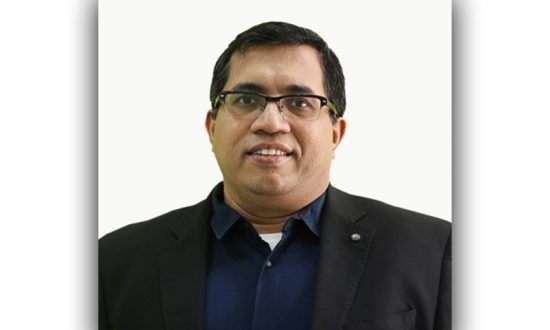A serial entrepreneur with 25 years of experience in Technology Leadership, Narayan Mahadevan is the Founder of IP driven Incubation Lab, BridgeLabz. An AWS recognised company, BridgeLabz focuses on increasing employability and nurturing ideas as well as talents in the Emerging technologies domain. Narayan oversees the overall operations and functions at the company.
India’s literacy rate has increased significantly in the last two decades, from 64.83% in 2001 to 77.7% in 2022. However, the rise in literacy rate has not directly resulted in increased employment or skilled/employable personnel. The reason is that colleges and universities continue with the traditional setup of providing theoretical knowledge to students at a time when technology and trends are changing rapidly.
The National Institute of Employment data reveals that of 1.5 million engineers in India who pass out of college every year, only 4% are immediately employable. There are several factors responsible for this gap, but mostly that engineers do not get enough hands-on experience like in other professional courses like medicine, law, etc., that have a rigorous experiential aspect in their courses.
The skill gap emerges among engineers as there is a vast difference in what students are taught and what companies expect of candidates. The four-year degree is able to provide only 20% employment, the training institutes or EdTechs are able to muster a max of 30-40% placements, and recruitment platforms are in no position to bridge the gap to employment. Clearly, the standard academic approach of the classroom, course, curriculum, trainer, training, jack of all and master of none, etc., the methodology taken offline or online is in no position to deliver employment. This has to be looked at in a real sense in the most unacademic way to achieve employment outcomes. This is where upskilling platforms come in.
The employability gap is widening because all solutions currently in this space are either trying to solve it from an education (EdTech) approach (learn/get a certificate and you can get a job) or the JobTech approach (just connect the talent and companies). However, upskilling programmes and platforms are playing a crucial role in making engineering graduates industry-relevant with their skill enhancement programmes. It provides them with practical experience working on the latest technologies and industry-relevant skills. The employability problem can be solved only by building custom talent for every organization at scale.
There are several upskilling platforms in the market, but candidates must ensure that they are joining a skill enhancement programme that offers an experiential learning style.
Experiential learning programmes
Why experiential learning programmes? They are a combination of theoretical and practical lessons. The tech talent can practice their skills and learn the latest technologies as part of such a setup. They get to learn theoretical knowledge’s practical implications with mentors’ feedback. It strengthens their area of knowledge. The talent learns by solving a continuous set of evolving problems that have been uniquely put together to help that particular individual get ready for a specific job profile. This is jointly decided with the mandating organization, so the talent is completely job-ready.
Employment Assistance
The upskilling platforms are also providing young candidates with employment assistance to build the skill gap in the IT industry. It helps professionals land a suitable job and increases their chances of career growth and advancement. These platforms provide ample opportunities for upskilling.
Conclusion
As technology continues to change rapidly and tech companies look at the Indian job market with high expectations, it is vital to make upskilling programmes more reliable. Custom experiential learning programmes are the way forward. They will help meet the market demand for skill and knowledge with skilled candidates.




